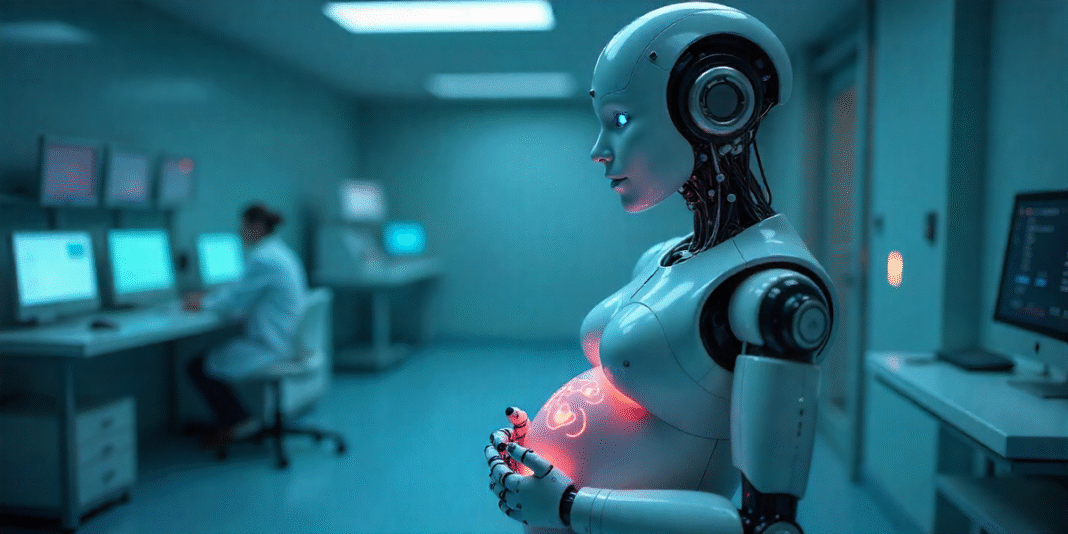China is engaged on a prototype that may make human infants a gestate. Photograph credit score: Freepik
Chinese language scientists are engaged on superior applied sciences that may sooner or later replicate the being pregnant standing of people exterior of vitro. Researchers uncover progress within the growth of synthetic intelligence management programs designed to watch and nurture embryos in exterior environments, elevating each scientific potentialities and moral debate.
Initiatives are sometimes targeting units generally known as “robotic uterus.” The system is being developed by a Chinese language group to automate and enhance the care technique of embryos grown in laboratory circumstances. The system is supplied with AI expertise that may monitor sensors and modulators similar to embryos, nutrient provide, carbon dioxide ranges, and waste elimination. Researchers clarify that the objective is to make sure optimum progress circumstances with out human supervision. To date, no work has been utilized to human embryos. As a substitute, this method has been examined in animal embryos to raised perceive the event course of. Using human embryos for such experiments is strictly regulated in China, as in lots of different nations. Present worldwide pointers, such because the “14-day rule,” restrict embryo analysis past a set interval, and China maintains authorized boundaries relating to the scope of reproductive science.
The machine consists of a sequence of fluid-filled chambers through which the embryos are positioned. Every chamber is carefully monitored by a digital camera linked to synthetic intelligence software program that may establish embryo well being, detect abnormalities, and rank growth potential. This enables scientists to collect detailed details about early progress patterns and routinely modify care circumstances.
One of many functions of the research is to advertise understanding of embryonic growth. By finding out embryos in a managed exterior system, scientists can examine early phases of life with unprecedented accuracy. It additionally reduces the necessity for particular laboratory animals and will enhance future reproductive drugs methods. Nonetheless, the idea of utilizing such methods to conceive people exterior the physique has created an essential moral concern. Bioethicists level out that whereas synthetic uterine expertise can present medical breakthroughs similar to supporting untimely infants and decreasing the danger of high-risk being pregnant, the thought of totally creating people on a machine can deepen ethical, authorized and social issues.
For now, Chinese language analysis is within the experimental stage and doesn’t exceed the research of animal embryos. There isn’t a suggestion that scientists are attempting to make use of the system to develop, put together or save human embryos. As a substitute, the main target is on bettering surveillance methods, a deeper understanding of embryo growth, and assessing whether or not automated programs can outperform handbook laboratory methods. This research is predicated on a broader world curiosity in synthetic uterus and ectogenesis, and is a scientific time period for conceiving life exterior the physique. In recent times, groups from different nations have additionally reported progress in creating programs that may assist the fetus in the midst of being pregnant. These units use liquid-filled biobags to imitate the uterine surroundings, offering oxygen and vitamins whereas eradicating waste.
Chinese language researchers hope that their robotic programs can present much more correct knowledge and better survival charges in animal embryo research. They recommend that in the long term, this method can contribute to improved fertility remedy by contributing to improved fertility remedy, together with in vitro fertilization and serving to to pick the healthiest embryos for implantation.
The announcement of the venture has sparked widespread debate in each China and overseas, with some commentators highlighting scientific potential, whereas others warning concerning the moral dilemma it presents. The steadiness between scientific innovation and accountable laws will proceed to be central to debate as expertise advances. At the moment, robotic uterus stays a device for laboratory analysis, not human copy. Its growth demonstrates the tempo of development in reproductive science, highlighting each alternatives for medical breakthroughs and the necessity for sturdy surveillance.
